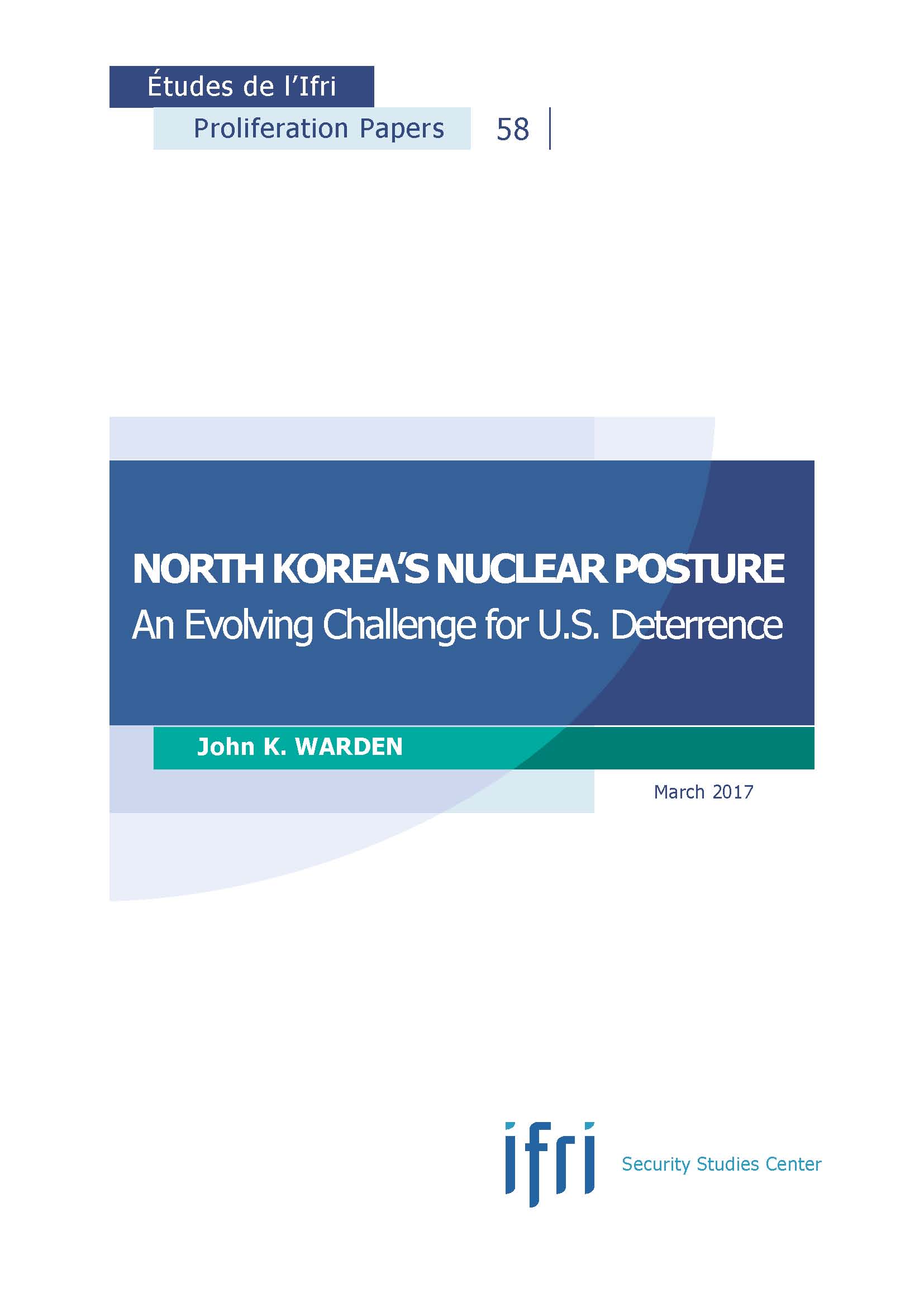North Korea's Nuclear Posture: an Evolving Challenge for U.S. Deterrence

A more capable, nuclear-armed, North Korea will pose very substantial challenges to the U.S. deterrence posture.
While North Korea’s nuclear program already serves multiple functions in its security strategy, it is likely to acquire an even greater role over the coming years. Once the regime deploys more advanced nuclear weapons and ballistic missiles, it might be tempted to pursue a revisionist agenda focusing either on the reunification of the Korean peninsula or on more limited aims. In support of such ambitions, Pyongyang may develop a theory of victory relying on the threat of nuclear escalation to deter enemies from pursuing regime change and to compel them to accede to its demands. As North Korea’s capabilities mature, the United States, South Korea, and Japan will need to articulate a comprehensive approach to deterring Pyongyang while managing their differences to respond to North Korea’s behavior during peacetime, crisis, and conflict. To deter Pyongyang, coordination is key, hence the need for the United States and its allies to adopt a layered deterrence strategy and determine courses of action that, if pursued vigorously and carefully, would increase their chances of containing a nuclear-armed North Korea and avoiding nuclear war.

Available in:
Regions and themes
Share
Download the full analysis
This page contains only a summary of our work. If you would like to have access to all the information from our research on the subject, you can download the full version in PDF format.
North Korea's Nuclear Posture: an Evolving Challenge for U.S. Deterrence
Related centers and programs
Discover our other research centers and programsFind out more
Discover all our analysesBundeswehr: From Zeitenwende (historic turning point) to Epochenbruch (epochal shift)
The Zeitenwende (historic turning point) announced by Olaf Scholz on February 27, 2022, is shifting into high gear. Financially supported by the March 2025 reform of Germany’s “debt break” and backed by a broad political and societal consensus to strengthen and modernize the Bundeswehr, Germany's military capabilities are set to rapidly increase over the coming years. Expected to assume a central role in the defense of the European continent in the context of changing transatlantic relations, Berlin’s military-political position on the continent is being radically transformed.
Main Battle Tank: Obsolescence or Renaissance?
Since February 2022, Russian and Ukrainian forces combined have lost more than 5,000 battle tanks, a much higher volume than all the European armor combined. Spearhead of the Soviet doctrine from which the two belligerents came, tanks were deployed in large numbers from the first day and proved to be a prime target for UAVs that became more numerous and efficient over the months. The large number of UAV strike videos against tanks has also led a certain number of observers to conclude, once again, that armor is obsolete on a modern battlefield. This approach must, however, be nuanced by a deeper study of the losses and their origin, UAVs rarely being the sole origin of the loss itself, often caused by a combination of factors such as mines, artillery or other anti-tank weapons.
Mapping the MilTech War: Eight Lessons from Ukraine’s Battlefield
This report maps out the evolution of key technologies that have emerged or developed in the last 4 years of the war in Ukraine. Its goal is to derive the lessons the North Atlantic Treaty Organization (NATO) could learn to strengthen its defensive capabilities and prepare for modern war, which is large-scale and conventional in nature.
"Iron Swords" A Military Analysis of Israel's War in Gaza
On October 7, 2023, Hamas' attack, dubbed “Al-Aqsa Flood,” caused a major shock and led Israel to launch the longest war in its history. Operation “Iron Swords” was notable for its unprecedented intensity, both in terms of the massive ground forces deployed and the firepower used.











